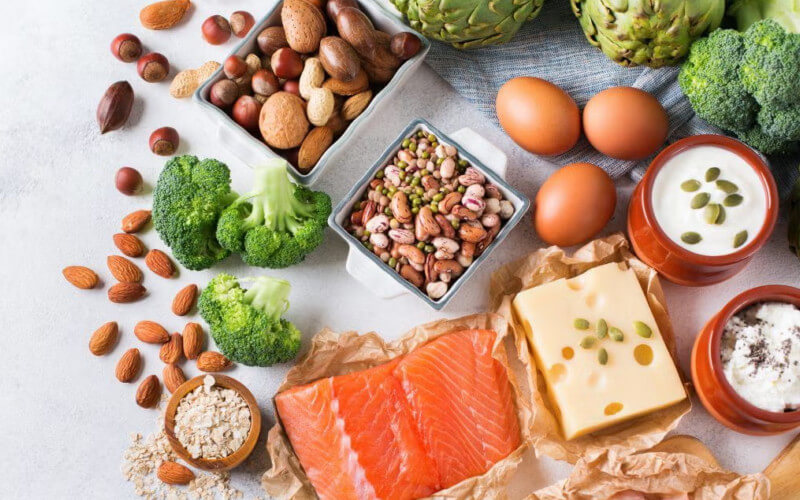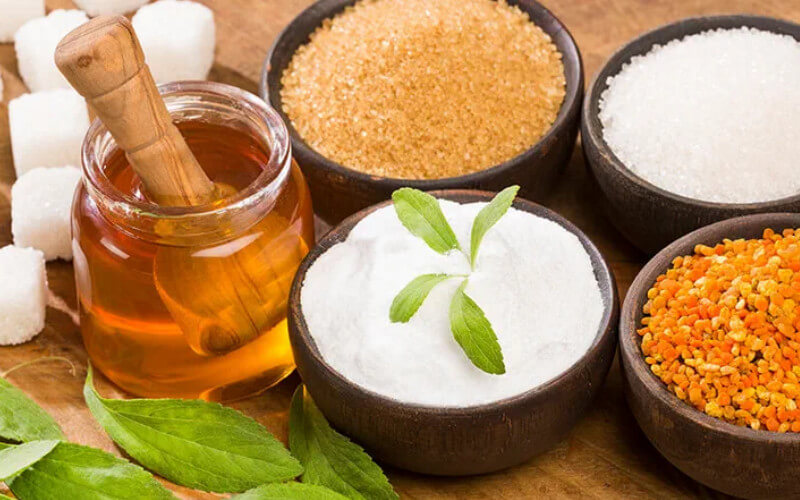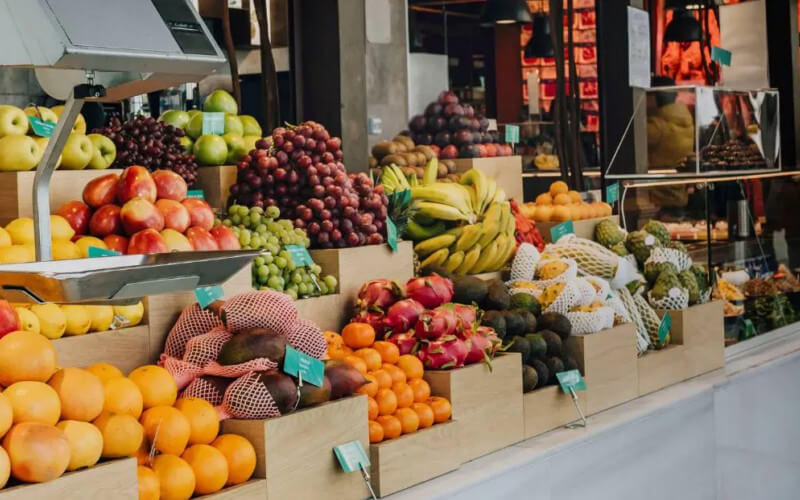First : The Power of Organic Ingredients in Everyday Cooking
Cooking with organic ingredients is more than just a trend—it’s a lifestyle choice that promotes better health, flavor, and sustainability. As more people embrace healthy cooking and clean eating, understanding what goes into your meals has never been more important. When you choose natural foods, you’re not only nourishing your body but also supporting eco-friendly farming practices that help protect our planet.
In this guide, we’ll explore the best organic ingredients to elevate your dishes, boost your nutrition, and make your kitchen the heart of wellness and flavor.
1. Why Choose Organic? The Benefits of Natural Foods

Before diving into the ingredients, let’s understand why organic ingredients are worth it. Organic foods are grown without synthetic pesticides, fertilizers, or GMOs. This means you get pure, nutrient-rich products free from harmful chemicals. Studies from National Center for Biotechnology Information show that organic produce contains higher antioxidant levels compared to conventionally grown crops.
Choosing natural foods supports small-scale farmers, reduces pollution, and ensures your meals are packed with wholesome goodness. For more insights, check out Organic Facts and Environmental Working Group.
2. Organic Fruits and Vegetables: The Foundation of Healthy Cooking
When it comes to healthy cooking, fresh fruits and vegetables are your best allies. Organic produce not only tastes better but is also free from harmful residues. Some of the best organic options include:
- Berries: Blueberries, strawberries, and raspberries are loaded with antioxidants and are often part of the “Dirty Dozen” list, making organic versions essential.
- Leafy Greens: Spinach, kale, and lettuce absorb chemicals easily, so go organic whenever possible.
- Root Vegetables: Carrots, beets, and potatoes offer earthy flavor and nutrients when grown without synthetic fertilizers.
To find seasonal organic produce, visit Local Harvest or Farmers Market.
3. Organic Grains and Legumes for Energy and Protein

Whole grains and legumes are staples of healthy cooking and plant-based diets. Choosing organic ingredients like quinoa, brown rice, oats, and lentils ensures you’re avoiding pesticide residues commonly found in conventional products.
These foods are rich in fiber, vitamins, and minerals, making them excellent for heart health and digestion. To explore certified organic grains, check Bob’s Red Mill and Thrive Market.
4. Organic Herbs and Spices: Nature’s Flavor Boosters
Herbs and spices transform simple dishes into gourmet meals. However, many conventional spices are irradiated or treated with preservatives. That’s why organic herbs are a must-have for natural foods lovers.
- Turmeric: Known for its anti-inflammatory properties, perfect for soups and curries.
- Cinnamon: A natural antioxidant that adds warmth to both sweet and savory recipes.
- Oregano, Basil, and Thyme: Essential for Mediterranean-style dishes.
Learn more about cooking with organic spices from Frontier Co-op and Simply Organic.
5. Organic Oils and Fats for Flavor and Health

Fats are essential in cooking—not just for taste, but also for nutrient absorption. The key is choosing healthy, organic options that are cold-pressed and unrefined. These retain their nutrients and deliver richer flavors.
Try using:
- Organic Extra Virgin Olive Oil: Ideal for dressings and sautéing.
- Coconut Oil: Great for baking and frying, adds a tropical flavor.
- Avocado Oil: Rich in monounsaturated fats and perfect for high-heat cooking.
For detailed comparisons, explore Healthline’s Guide to Healthy Oils.
6. Organic Dairy and Plant-Based Alternatives
If you use dairy, choose organic milk, cheese, and yogurt from grass-fed cows. These contain higher omega-3 fatty acids and antioxidants. For those who prefer plant-based options, organic almond, oat, or coconut milk is ideal.
For recommendations on organic dairy brands, visit Organic Valley or Stonyfield.
7. Organic Sweeteners and Natural Alternatives

Refined sugar is one of the least healthy cooking ingredients. Replace it with natural, organic sweeteners such as:
- Raw Honey: Contains enzymes and antioxidants that promote health.
- Maple Syrup: Adds depth to baked goods and sauces.
- Coconut Sugar: A lower-glycemic option for desserts and coffee.
To learn more about organic sugar alternatives, explore Medical News Today.
8. Organic Meats and Sustainable Proteins
When you buy organic meat, you’re choosing animal products raised without antibiotics, hormones, or genetically modified feed. Look for labels like “USDA Organic” or “Certified Humane.” These ensure ethical sourcing and better quality.
For sustainable options, check ButcherBox and Whole Foods Market.
9. Organic Snacks and Pantry Staples
Stocking your pantry with organic ingredients makes healthy cooking easier. Choose organic nuts, seeds, and dried fruits for quick energy. Organic sauces, broths, and condiments also enhance flavor while keeping meals clean and nutritious.
Find pantry essentials at Amazon Organic Section or iHerb.
10. How to Shop Smart for Organic Ingredients

Eating organic doesn’t have to break the bank. Follow these smart shopping tips:
- Buy in bulk from trusted online stores like Costco.
- Focus on high-impact organic foods (like berries, greens, and dairy).
- Grow your own herbs and greens indoors for ultimate freshness.
Check out our guide on Affordable Healthy Eating Tips (example.com) and Home Gardening for Beginners (example.com) for more ways to save.
Conclusion: Cook with Purpose and Flavor
Embracing organic ingredients transforms the way you cook and eat. You’ll experience richer flavors, improved health, and the satisfaction of supporting sustainable food systems. Whether you’re making a simple salad or a gourmet meal, choosing natural foods ensures that every bite is packed with nutrients and integrity.
Start small—swap conventional staples for organic ones, and gradually build your pantry around healthy cooking essentials. Before long, you’ll notice the difference in both your meals and your well-being.




